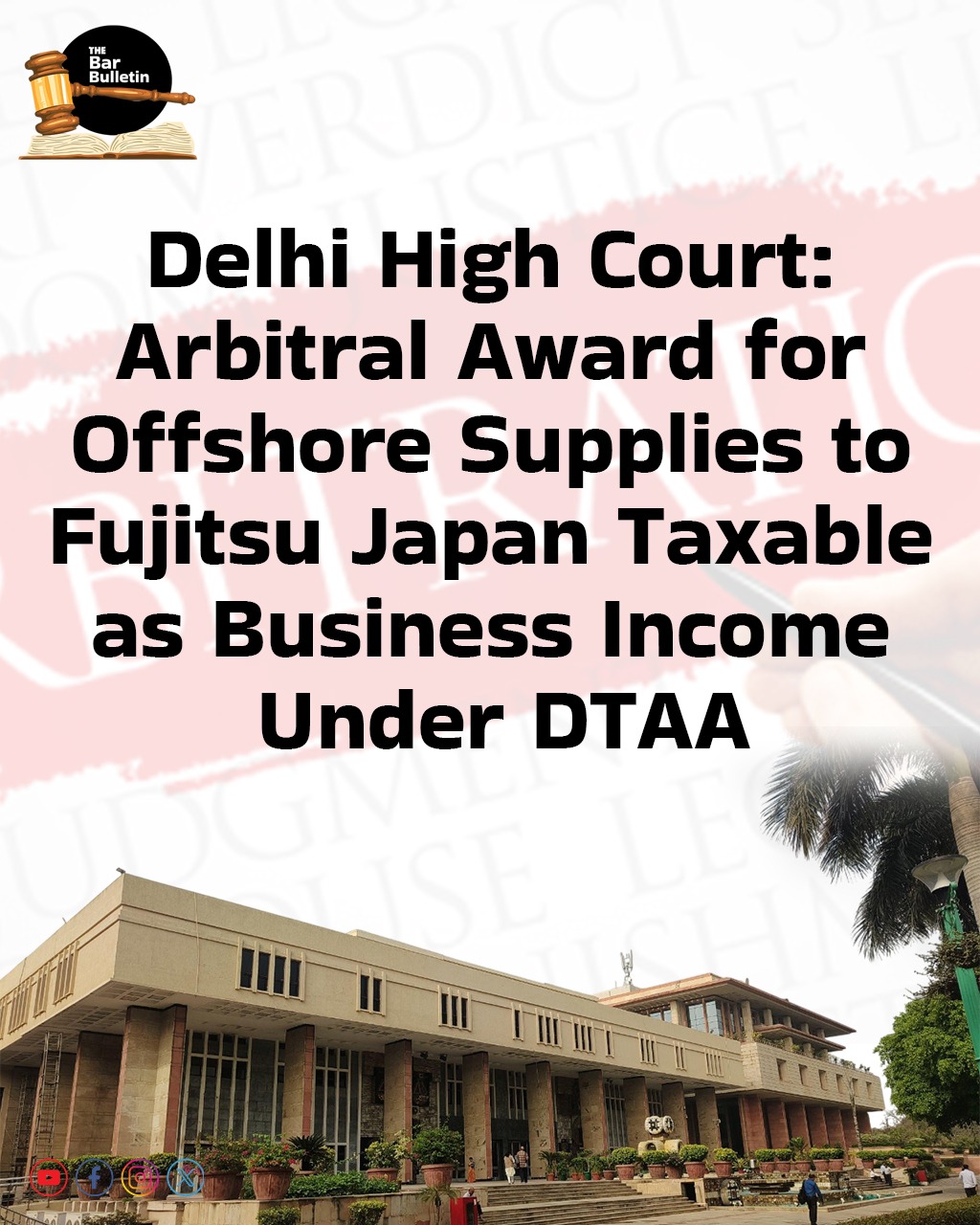Finding that the claim raised by Fujitsu, a tax resident of Japan (Respondent), for non-payment of amounts due for supplies made by it, was accepted by the Arbitral Tribunal and an arbitral award stood passed in its favour, the Delhi High Court confirmed the findings of the ITAT that those arbitral receipts would be treated as business income in the hands of the Respondent, and its taxability had to be considered bearing in mind Article 7 of the India-Japan Double Taxation Avoidance Agreement (DTAA).
The Division Bench comprising Justice Vibhu Bakhru and Justice Tejas Karia observed that the amount awarded to the Respondent was against its claims for payment of supplies, which was accepted by the Arbitral Tribunal, and thus, undisputedly, the receipts in the hands of the Respondent were inextricably linked to its business and were on account of its business activities.
In this case, the Respondent received an amount of Rs. 32.97 crores in terms of an arbitral award, and pleaded that the same was not taxable under Article 7 of the India-Japan DTAA. The AO, however, found that those receipts were from its Indian affiliate and considered them to be chargeable to tax under the head ‘income from other sources’. The AO reasoned that the amount received by the Respondent in terms of the arbitral award could not be considered as business income.
The matter went in appeal before the ITAT, which found that the Arbitral Tribunal had rendered the arbitral award in favour of the Respondent regarding its claim in respect of nonpayment of dues for offshore supplies. Accordingly, the ITAT directed that said amount be considered as ‘income from business’ in the hands of the Respondent. Not satisfied, the Department approached the High Court, where it got rejected and a decision was passed in favour of the Respondent, upholding the ITAT’s order.
Appearances:
Appellant: Advocates Puneet Rai, Ashvini Kumar, Rishabh Nangia, Gibran, Nikhil Jain, Srishti Sharma, and Pratham Aggarwal
Respondent: Advocates Prakash Kumar and Rashmi Singh



